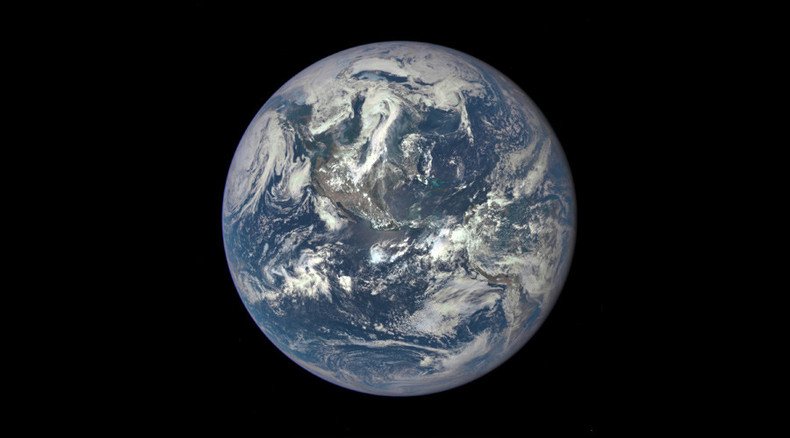‘We’ve just used our entire supply of resources for 2015’ – scientists

The day humans “overshot” the limit of Earth’s resources for 2015 comes six days earlier than previous year. Earth Overshoot Day is a day calculated by an international team of scientists to gauge when humanity’s demand for ecological resources in a given year exceeds what the planet can regenerate in that year.
August 13 has been proclaimed the day we went into so-called “ecological debt,” according to a study carried out by the Global Footprint Network (GFN), an independent think tank based in the US, Belgium and Switzerland.
Mega drought: #US southwest set for worst water shortage in 1,000 years http://t.co/BY8wfFQcxkpic.twitter.com/tgkrroELqi
— RT (@RT_com) February 14, 2015They arrived at the estimate after tallying up our carbon footprint, resource depletion (livestock, fish and cropland) and deforestation. This was then compared to Earth’s rate of restoring the levels back to normal, including the natural absorbing of the emitted carbon. And we’re falling behind, the GFN says.
This ‘line of credit’ has been open since the 1970s – and the day we overshoot has quietly been coming earlier with each passing year.
Earth closer to 'irreversible changes' as humanity crosses 4 of 9 planetary boundaries http://t.co/hxLKB9YuWG
— Noah Berman (@noahberman) January 18, 2015“The big problem is not that our deficit is getting bigger, it is that it cannot be maintained in the long run. Even though we are in a deficit equation, we are not taking measures to take us in the right direction. The problem is psychological – somehow we are missing this basic physical law. It is obvious to children, but for 98 percent of economic planners it is a minor risk not worth our attention. In the end, the question is: ‘Does it matter to the government?’” GFN president Mathis Wackernagel told The Guardian.
By the think tank’s estimates, humanity is consuming 1.6 times what it should, and things will get worse in a matter of years. Researchers say we can expect within 15 years to consume twice the allowed limit of resources, if the current trends persist.
6th mass extinction already here as species disappear 100 times faster - study http://t.co/LkonznTwxRpic.twitter.com/GXTodUXSeU
— RT (@RT_com) June 21, 2015The figures appear not to be the same for every country. The UK, for example, goes through three times the allowed norm as compared to the rate its nature renews its reserves.
Another growing dent is left by developing countries, with their growing demand and quickly increasing populations.
These developments, according to Wackernagel, are evidenced by the decision by some of the world’s biggest polluters – US and China – coming to an agreement, together with the G20, that “we have to move out of fossil fuels by the end of this century – although this is a bit too slow in my opinion.”
Alarming figures can be seen across the board.
The US has been seeing its worst drought in about a millennium; the US southwest could face a so-called “mega-drought,” predicted to last decades. The chances that this will happen stand at 80-90 percent by 2100.
In the animal world, species have been extinguished by 50 percent since the 1970s. Some scientists talk of crossing a new planetary boundary – the fourth out of a total of nine; others that it’s already too late to turn back; while another study claims we could be facing a new mass extinction. This would be the sixth.
The Amazon rainforest, which provides “ecological services” not just for Latin America but worldwide, is predicted to be all but gone in another 40 years, together with the last remaining rainforests. This could have untold consequences for upsetting the delicate ecological state of our planet. This includes managing the levels of carbon dioxide in the air – something that only continues to increase together with global population.












